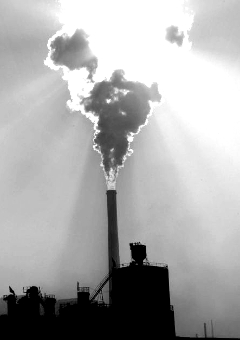Quiet white paper welcomed
 The federal government’s Energy White Paper has received support throughout the resources sector, which is pleased to hear of measures to boost LNG.
The federal government’s Energy White Paper has received support throughout the resources sector, which is pleased to hear of measures to boost LNG.
The document says the development of more liquid wholesale gas should be accelerated by the removal of impediments on new gas supplies.
It is a suggestion that has brought music to the ears of the Australian Petroleum Production and Exploration Association (APPEA) and the Queensland Resources Council, among other mining lobbies, but people looking for real change found nothing to get excited about.
The white paper says that it is “central to the Australian government's economic reform agenda for a strong and prosperous national economy”, but makes no particularly strong calls.
The Energy White Paper has been criticised for making mining-friendly suggestions, but not touching on any controversial or pro-environment measures.
Many industries want to enjoy the benefits of Australia’s booming gas industries by having some supply set aside for domestic use, so that they would not have to pay a gas price on par with international buyers.
The white paper shunted the issue of local gas supply and rates onto the State and Territory governments.
“Some states have unnecessary regulatory and planning barriers and moratoriums that prevent much-needed supply,” the white paper says.
It claimed that the government will be “responding to concerns expressed by industrial gas users about market transparency and price discovery in the gas market by commissioning an ACCC inquiry”.
On the topic of nuclear power, the white paper gave a muted view.
“The Australian government will consider the outcomes of the South Australian royal commission into its future involvement in the nuclear fuel cycle including the mining, enrichment, energy and storage phases for the peaceful use of nuclear energy,” it said.
The document was most vocally criticised for ignoring the risks of climate change from fossil-fuel burning, and for remaing virtually silent on renewable energy.
The report argues that “the policy of encouraging investment in renewable energy through the renewable energy target in a period of weak demand has contributed to Australia's excess generation capacity”.
But in the same paragraph it states that “the Australian government remains committed to a RET that allows sustainable growth in both small- and large-scale renewables so that 20 per cent of Australia's electricity demand in 2020 comes from renewable sources”.
The APPEA has naturally welcomed the call to further boost the gas industry, but says there is “no need for an Australian Competition and Consumer Commission inquiry into a gas market that already works”.
It says further inquiries cold hurt investor confidence in new exploration and development.
APPEA acting CEO Paul Fennelly says that rejecting any formal gas reservation policy would please investors in an industry that requires high capital input and rapid approvals.
“Policies that enhance Australia’s attractiveness as a place to do business and encourage industry to increase domestic gas supplies can deliver another wave of prosperity in addition to the current $180 billion pipeline of investment in liquefied natural gas export projects,” he said.
Queensland Resources Council chief executive Michael Roche simairly welcomed most point of the white paper, but said he was alarmed at the revelation that Australia was failing to meet its commitment to keep a 90 day national fuel stockpile, as part of the international Energy Agency treaty.
“The nation’s inability to supply transport fuels by diversifying our supply mix means that Australia is increasingly exposed to global geo-political risks,” Roche said.
“Queensland is well endowed with the expertise to bring into production a whole portfolio of alternative fuel technologies including gas-to-liquids, coal-to-liquids, shale-to-liquids, biofuels [ethanol/biodiesel], micro-LNG and CNG.
Roche says there is still plenty of ways to develop fossil fuel, and create jobs in the process.
“Each technology has a different potential to contribute in terms of volume, cost and timing, but the diversification they offer the Australian economy simply hasn't been recognised in the White Paper,” he said.







 Print
Print